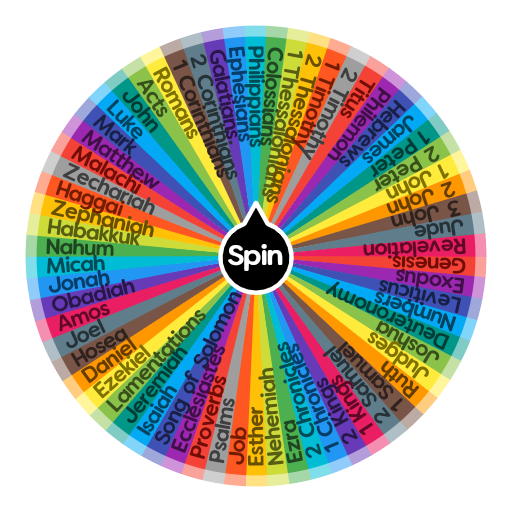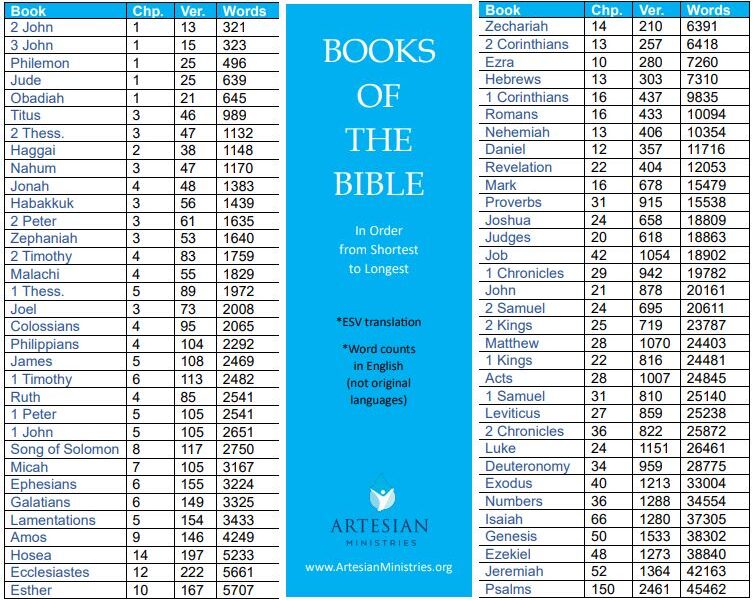What Book of the Bible Should I Read: Divine Guidance
The Gospel of John is a great book to start with for Bible study. John’s narrative style helps new believers understand Jesus’ teachings and adds context for reading other books.
Reading the Bible in chronological order can also provide insights into historical events and connections between passages. Psalms is another popular choice, offering a diverse collection of poems that express a wide range of human emotions and experiences in relation to God.
Ultimately, the best book to read in the Bible is one that resonates with your spiritual journey and helps you grow closer to God. Each book offers unique insights and messages that can inspire and guide you in your faith.
Introduction To Choosing A Biblical Book
Welcome to the journey of selecting a book from the Bible to read. The Bible is a rich collection of diverse books, each with its own unique message and purpose. When it comes to choosing a book from the Bible, it’s essential to consider your personal intentions and spiritual goals, as well as gain a brief understanding of the Bible’s structure.
Personal Intentions And Spiritual Goals
Before diving into a specific book of the Bible, it’s important to reflect on your personal intentions and spiritual goals. Are you seeking comfort and encouragement? Do you want to deepen your understanding of biblical history? Are you exploring specific themes such as love, faith, or wisdom? By identifying your intentions and goals, you can narrow down the selection of books that align with your spiritual needs.
Brief Introduction To The Bible’s Structure
The Bible is divided into two main sections: the Old Testament and the New Testament. The Old Testament contains 39 books, including historical accounts, poetry, prophecy, and wisdom literature. On the other hand, the New Testament consists of 27 books, focusing on the life, teachings, and impact of Jesus Christ, as well as the early Christian church.

Credit: chasingvibrance.com
Importance Of Context In Selecting A Book
When choosing a book of the Bible to read, understanding the historical, cultural, and theological context is crucial. This context can greatly impact the comprehension and application of the message conveyed within each book. By considering the historical and cultural background as well as the theological themes across different books, readers can make informed decisions about which book to engage with based on their specific needs and interests.
Historical And Cultural Background
Each book of the Bible is rooted in a specific historical and cultural context. Understanding the historical and cultural background of a particular book provides valuable insights into the circumstances and events that shaped the messages and teachings contained within it. For example, exploring the historical context of the Old Testament books can shed light on the socio-political conditions of the ancient Israelites, while delving into the cultural milieu of the New Testament books can reveal the societal norms and religious practices of the early Christian communities.
Theological Themes Across Different Books
Examining the theological themes that permeate the various books of the Bible allows readers to discern the diverse perspectives and teachings presented within the sacred text. Each book contributes unique theological insights and doctrinal concepts, offering a rich tapestry of spiritual wisdom and guidance. From the themes of redemption and covenant in the Old Testament to the teachings of grace and salvation in the New Testament, exploring the theological threads woven throughout the Bible can deepen one’s understanding of God’s plan for humanity.
Books For Beginners
The Bible is a vast collection of books that can be overwhelming for beginners. However, there are certain books that serve as excellent starting points for those who are new to the Bible. Whether you are seeking to understand the teachings of Jesus or foundational stories, there are specific books that cater to the needs of beginners.
The Gospel Of John For Understanding Jesus
When it comes to understanding the teachings and life of Jesus Christ, the Gospel of John serves as an excellent starting point. The Gospel of John presents a unique perspective on the life and ministry of Jesus, emphasizing his divinity and the profound significance of his teachings. For beginners, this book offers an accessible introduction to the central figure of Christianity.
Genesis For Foundational Stories
Genesis, the first book of the Bible, is a rich source of foundational stories that provide essential context for understanding the biblical narrative. Genesis includes the creation account, the stories of Adam and Eve, Noah’s ark, and the patriarchs of Israel. For beginners, this book offers a foundational understanding of the origins of humanity and the nation of Israel.
Deepening Faith With Specific Books
Reading the Bible is an essential part of growing your faith, but with so many books to choose from, it can be overwhelming to decide where to start. One way to deepen your faith is to focus on specific books of the Bible that align with your spiritual needs and goals.
Psalms For Emotional And Spiritual Expression
The book of Psalms is a collection of poetry that provides a range of emotional and spiritual expressions. The psalms capture the highs and lows of the human experience and offer a way to connect with God through prayer and meditation. If you’re looking for a book that will help you express your feelings and deepen your relationship with God, the book of Psalms is an excellent choice.
Proverbs For Wisdom And Daily Living
The book of Proverbs is a collection of wisdom sayings that provide practical advice for daily living. The proverbs cover topics such as relationships, money, work, and morality. If you’re looking for guidance on how to live a wise and fulfilling life, the book of Proverbs is a great place to start.
Other Books To Consider
While the book of Psalms and Proverbs are excellent starting points, there are many other books of the Bible that can deepen your faith and understanding of God’s word. Here are a few other books to consider:
- The Gospel of John – provides an introduction to the person and teachings of Jesus Christ
- The Book of Romans – offers a comprehensive explanation of the gospel
- The Book of Genesis – reveals the origins of humanity and God’s plan for redemption
Ultimately, the book of the Bible you choose to read will depend on your personal spiritual needs and goals. As you read and study the Bible, pray for guidance and ask the Holy Spirit to reveal the truth of God’s word to you.
Books For Advanced Readers
For those seeking deeper insights into the Bible, there are specific books tailored for advanced readers. These books delve into complex themes and require a deeper understanding of biblical context.
Isaiah For Prophecy And Poetry
The book of Isaiah is renowned for its prophetic messages and poetic expressions. It contains vivid imagery and profound insights into future events, making it a captivating read for those interested in prophecy and poetry.
Revelation For Eschatology
Revelation, the final book of the Bible, is a rich source of eschatological teachings. It explores end-time prophecies and offers a unique perspective on the culmination of human history, making it a must-read for those interested in eschatology.

Credit: spinthewheel.app
Reading Plans And Approaches
If you’re wondering what book of the Bible to read, starting with the Gospel of John can provide valuable insight into the person and teachings of Jesus Christ. This can offer helpful context when reading other books and help new believers gain a deeper understanding.
Chronological Reading For Historical Flow
Reading the Bible in chronological order helps you understand the historical context by following the timeline of events from Genesis to Revelation.
Thematic Reading For Focused Study
Thematic reading allows you to delve deep into specific topics or themes, such as love, faith, or redemption, by exploring related passages throughout the Bible.
Tools And Resources For Bible Study
To enhance your Bible study journey, consider starting with the Gospel of John. This book offers a unique narrative style that introduces the teachings and life of Jesus Christ, providing a solid foundation for understanding other parts of the Bible.
Study Bibles And Commentaries
Enhance your understanding with study Bibles featuring explanatory notes and insights. Commentaries provide in-depth analysis and historical context.
Online Resources And Communities
Access online resources such as Bible study websites, apps, and podcasts for diverse perspectives. Engage with online communities to discuss and learn from fellow believers.

Credit: www.pinterest.com
Overcoming Challenges In Reading
When it comes to delving into the Bible, many individuals encounter challenges that can hinder their reading experience. Overcoming these obstacles is crucial to developing a fulfilling and enriching relationship with the scriptures. In this section, we will explore some common challenges that readers face and discuss effective strategies for overcoming them.
Dealing With Difficult Passages
Encountering difficult passages can be discouraging, leading to a loss of interest in continuing to read the Bible. However, there are several approaches you can take to navigate through these challenging sections:
- Seeking guidance from commentaries or study resources
- Engaging in group discussions to gain different perspectives
- Praying for clarity and understanding
Staying Motivated And Engaged
Maintaining motivation and engagement while reading the Bible is essential for a meaningful experience. Here are some practical tips to help you stay motivated:
- Setting aside dedicated time for daily reading
- Creating a comfortable and distraction-free environment
- Exploring various translations for a fresh perspective
Frequently Asked Questions
What Book In The Bible Should I Start To Read?
Start with the Gospel of John for an engaging introduction to Jesus’ life and teachings.
What Book Of The Bible Should I Read To Get Closer To God?
To get closer to God, start with the Book of Psalms. Its poetic verses express a range of emotions in our relationship with God, providing encouragement and deepening spiritual connection.
How To Choose A Book To Read In The Bible?
To choose a book to read in the Bible, start with the Gospel of John. It provides an introduction to understanding the person and teachings of Jesus Christ, which can add helpful context when reading other books of the Bible.
Alternatively, read Psalms for a collection of poems written to God by different authors. For a historical approach, read the Bible in chronological order. Use the New Living Translation Bible for a more accessible read.
In What Order Should I Read The Bible?
Start with the Gospel of John to understand Jesus’ teachings and gain context for other books. Psalms offers a range of emotions and connection with God, while reading in chronological order provides historical context. Consider the New Living Translation for modern English readers.
Conclusion
There are several factors to consider when choosing a book of the Bible to read. If you’re a new believer, starting with the Gospel of John can provide helpful context for understanding the person and teachings of Jesus Christ. If you’re seeking encouragement, reading the Psalms can offer a healthy perspective on the highs and lows of our relationship with God.
Ultimately, the best book of the Bible to read is the one that speaks to you and helps you grow in your faith journey.

